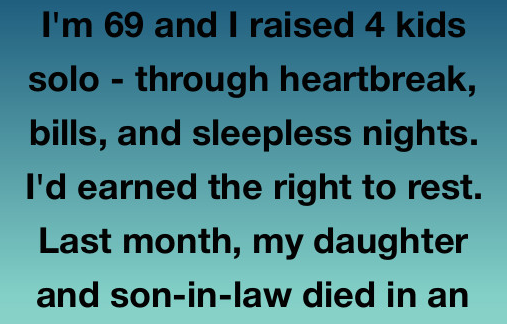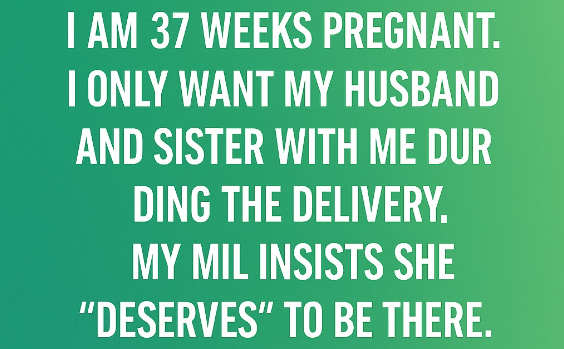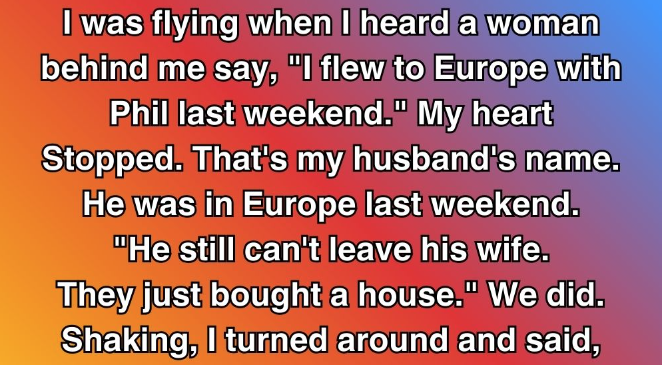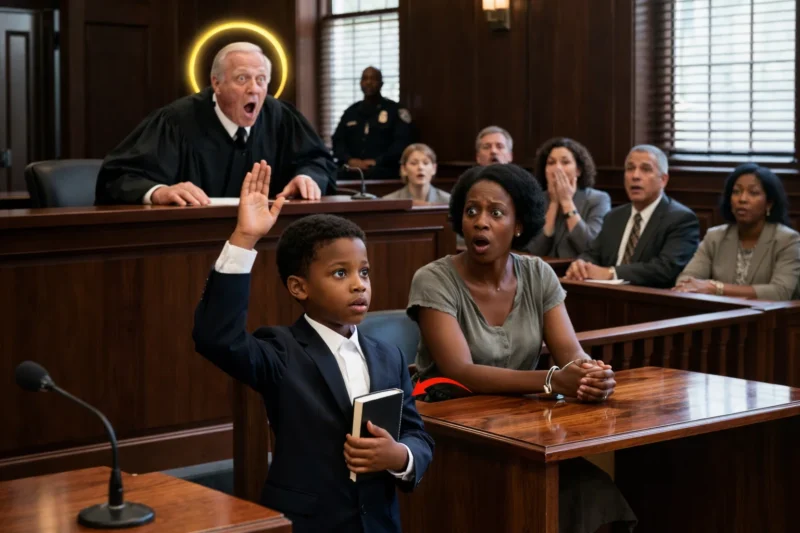At 69, I had raised four children alone through countless challenges—heartaches, endless bills, and nights without sleep. I felt I had earned a moment to breathe. Then tragedy struck. My daughter and son-in-law were taken in a sudden accident. The expectation fell on me to raise their two young sons. I refused. My family’s eyes burned with judgment, as if I had no heart. “I can’t do this again,” I told them firmly.
I left that conversation with my head held high, though my heart felt heavy, scraping the ground. To everyone, I appeared cold, as if I had abandoned my grandsons, Eli and Carter, to fend for themselves. But the truth ran deeper. Exhaustion had settled into my bones—not only from aching knees but from a weariness words couldn’t capture.
Decades earlier, I had raised my four children alone after their father left. I juggled two, sometimes three, jobs. Birthdays slipped by, holidays blurred, and I missed school plays to keep our home afloat.
Now, with my children grown and raising their own families, I had carved out a small space for myself. I joined a book club, tended a modest garden, and savored the quiet I hadn’t known in years.
When the call came about the accident, followed by the assumption I’d become the guardian of my grandsons—aged 7 and 5—my heart froze. Everyone thought, Of course she’ll step in. That’s what grandmothers do. But I didn’t have it in me.
Sleep evaded me after the funeral. I repeated my refusal to the social worker, echoing what I told my family: I couldn’t do it.
The boys went to live temporarily with their other grandmother, a woman I barely knew. She was younger, still working full-time, but willing to make it work. I kept my distance, convincing myself they were safe.
Yet guilt weighed on me, heavy and unyielding, like wet cement in my chest.
Weeks later, I saw them at the grocery store. Eli, the younger, wore mismatched shoes. Carter, the older, looked pale and worn. Their other grandmother seemed overwhelmed. I watched from afar, unnoticed, my heart twisting.
That night, I sat with a cup of tea, staring out my kitchen window for hours. Memories flooded back—packing lunches at dawn, tucking four children into bed, surviving on sheer will. I also remembered Carter dozing on my lap at family gatherings and Eli handing me a crumpled flower, calling it a “love stick.”
Sleep didn’t come that night either.
The next morning, I went to the family service office. I met with the caseworker and changed my answer. It wasn’t a grand, emotional moment. She asked if I was certain. I admitted I wasn’t. But I said, “They’re my grandsons. I have to try.”
Within days, Eli and Carter moved into my home.
That first night was raw. They wept for their parents, asking why God took them. I had no answers, only arms to hold them and promises they were safe.
The weeks that followed blurred into school runs, therapy sessions, and relearning bedtime routines. I bought them clothes, cooked their favorite meals, and wrestled with the school’s parent portal. My body ached, my patience frayed, and I cried in the shower more than once.
But slowly, we found our rhythm.
One evening, Carter gave me a drawing of our house—my house—with the three of us standing outside, hands linked. “This is our home now, right, Grandma?” he asked.
I nodded, smiled, and later, alone on the couch, I wept.
Children notice everything. They sense when you’re barely holding on. One afternoon, as I struggled to fix a broken lamp, I knocked over a cup of juice. Frustration surged, but before I could speak, Eli climbed beside me. “It’s okay, Grandma. We can clean it,” he said.
I laughed and cried at once.
Months passed, and my family drew closer. My son Adrian began helping with yard work every Saturday. My daughter Ruth brought meal-prepped dinners to lighten my load. My other children, once distant, called weekly. Perhaps they finally saw the weight I’d carried all those years. Maybe this chapter helped them understand.
Not every day was easy.
Some moments made me question my choice. When the school nurse called about Carter fighting. When Eli’s nightmares woke us with screams. When I saw a weary stranger in the mirror. I felt too old, too stretched, too everything.
Then, one Sunday at church, something changed.
The boys joined me for the first time. They sat quietly. During coffee hour, a woman from my Bible study approached. “You’re a hero,” she said warmly.
I laughed, brushing it off.
“No,” she insisted. “You’re what family looks like.”
At home, I looked around. Toys littered the hallway, peanut butter stained the table, and laundry piled high. But the house felt alive—not just with noise, but with purpose.
Then came a shock.
One Friday, the school called. Carter had collapsed in gym class. I raced to the hospital, heart pounding. He was awake but pale. After tests, the diagnosis came: juvenile diabetes. It meant insulin, strict diets, constant vigilance. My heart ached for him.
I stayed by his hospital bed that night, curled in a chair. When he woke, he looked at me and asked, “Are you gonna send us away now?”
I climbed into his bed, ignoring my aching back. “Never,” I whispered.
The months that followed were the hardest yet. Learning about glucose levels, insulin shots, and emergency kits tested us. School adjustments and insurance battles piled on. But we faced it together.
One day, Ruth pulled me aside after dinner. She looked nervous. “I’ve been thinking about taking the boys in,” she said. “Maybe it’s time I step up.”
I was stunned. For once, someone offered help without being asked.
Ruth and her husband eased into it—more visits, school pickups, attending Carter’s doctor appointments. They took the boys for a trial weekend.
Part of me felt a pang of guilt, as if I were letting go.
But one night, Carter said, “I know we might live with Aunt Ruth soon… but can we still have Friday pancakes at your house?”
That’s when I knew. I wasn’t losing them. I had given them what they needed most: love, stability, and a soft place to land.
Six months later, Ruth took guardianship. I still saw Eli and Carter weekly—sleepovers, school projects, calls for scraped knees or math help. But now, I could rest.
Not because I gave up.
Because I did what I could, and someone else was ready to carry on.
Strength isn’t always saying yes. Sometimes, it’s knowing your limits and still showing up. I wasn’t heartless when I said no. I was scared and tired. But love has a way of pulling you back. It shows you what you’re capable of, even when you feel empty.
The reward isn’t in doing everything.
It’s in doing what you can, for as long as you can, and trusting love to bridge the gap.
If this story resonates with you or reminds you of someone who’s carried a heavy load, share it. Give it a like. You never know who needs to hear that it’s okay to be tired—and still be a hero.




